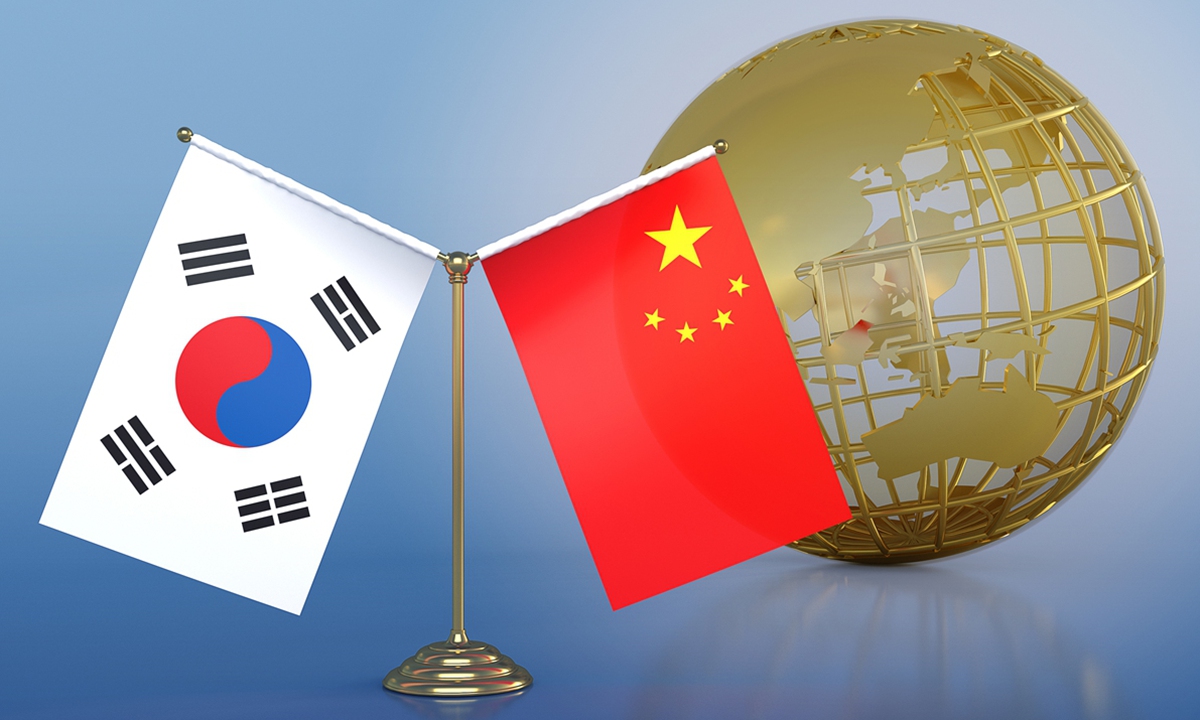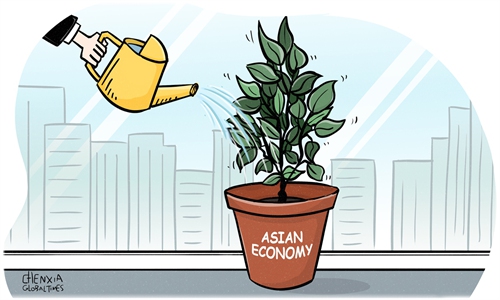
China South Korea Photo:VCG
As South Korea's currency continues to weaken, exports continue to fall and the current account falls into a deficit, South Korean officials and businesses are increasingly seeking to expand exports to China, while growing weary of US policies and pressure on its exports.
The won stands at 1,435.57 against the US dollar on Tuesday, depreciating nearly 20 percent year-on-year and 3.9 percent month-on-month.
South Korea's exports fell 20.2 percent from a year earlier in the first 10 days of October, while imports fell 11.3 percent. As of October 10, the country's cumulative trade deficit this year came at $32.714 billion.
Analysts said that with the US Federal Reserve sucking up dollar liquidity through its monetary tightening policy, South Korea's dollar supply and demand are in turmoil. And there are fears that South Korea could experience a repeat of the 1997 Asian financial crisis and the 2008 financial crisis.
As an export-reliant country, South Korea also risks a foreign exchange crisis in the worst case.
Some South Korean businesses and officials are wondering if they can trust the US, the Korea Times reported on Tuesday, citing a senior executive at a technology affiliate of LG Group.
South Korea should increase cooperation with the EU and others to better challenge US protectionist trade policies, the executive said.
Meanwhile, the South Korean government will support businesses expanding in the Chinese market to increase exports, focusing on areas where South Korea has strengths such as education and medical services, South Korean media Money Today reported earlier.
Recently, South Korean trade associations have also been actively hosting events and plan to hold more exhibitions to boost exports to China and bilateral cooperation.
For example, on September 29, KOTRA and the provincial government of Central China's Hubei held a forum for logistics and online meetings for Chinese and South Korean companies.
As one of the results, the Hubei-Kansai (Japan)-Busan (South Korea) multimodal transport project has been in regular operation and connected with the China-Europe freight railway network.
The Chinese market is indispensable for South Korea as its trade surplus with China accounted for 86 percent of its total trade surplus from 1993 to 2021.
Semiconductor exports to China in particular increased more than 160 times in the past three decades, with the export value standing at $162.9 billion in 2021, accounting for 39.7 percent of South Korea's chip exports, according to the Korea Trade-Investment Promotion Agency (KOTRA).
However, due to the US' chip ban on China, South Korea's first-half exports of chips and equipment to China fell 52 percent, according to media reports.
South Korea has invested heavily in the chip field in China, making its abrupt exit from Chinese market difficult, but it also doesn't dare to confront the US, Zhang Xiaorong, director of the Beijing-based Cutting-Edge Technology Research Institute, told the Global Times, noting that China is the world's largest semiconductor consumption market.
Facing huge uncertainty in global economic growth, global industry chains must stay together and coordinate to maintain normal operations and development, Hu Qimu, deputy secretary general of digital-real economies integration forum 50, told the Global Times on Tuesday.
"Today's global supply and industry chains are based on comparative advantages and resource endowments of various countries. Distorting the global price system through trade protectionism or by raising interest rates like the US Fed will reduce the efficiency of global resource allocation and industrial operations," said Hu.


